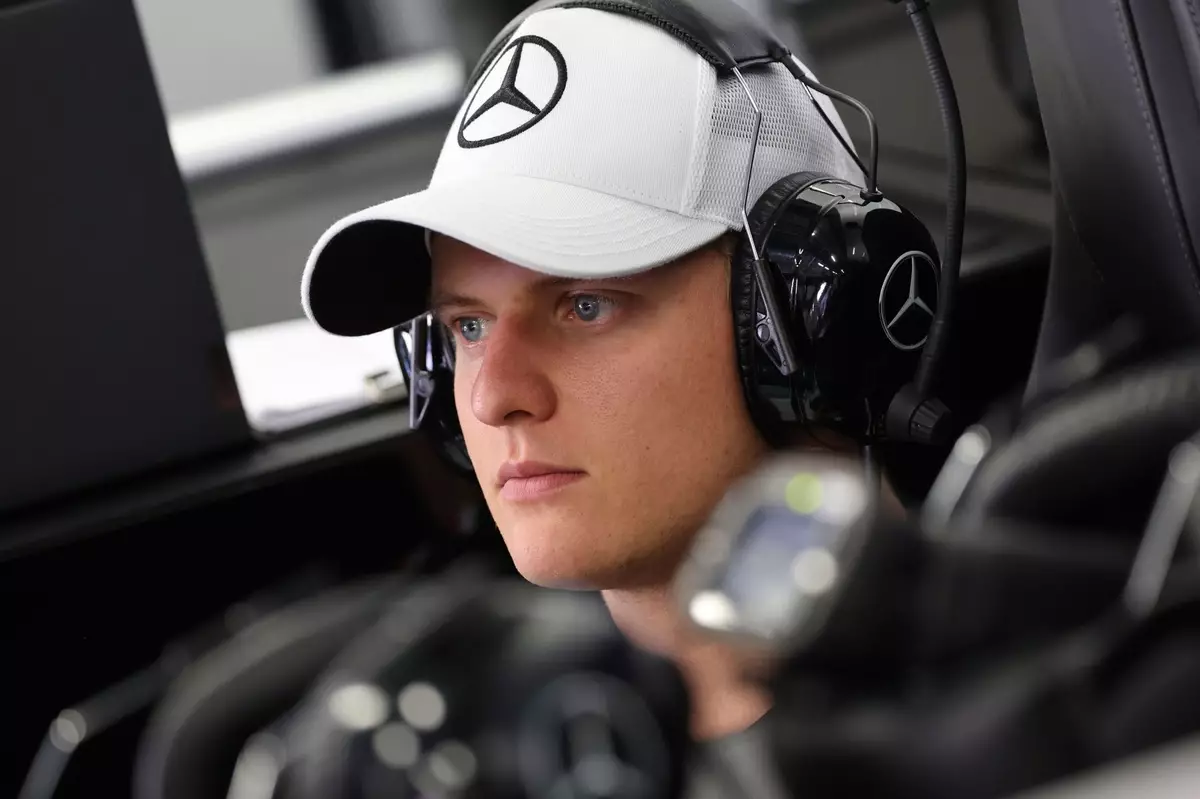Mick Schumacher’s journey through the tumultuous landscape of Formula 1 has taken yet another twist. Once a promising talent racing under the renowned Haas team, Schumacher found his dreams suddenly snatched away at the end of 2022. After two seasons as a reserve driver with Mercedes, an unexpected path has emerged for him to make a comeback with Audi’s Sauber team. This opportunity could be his final chance to solidify his position in a sport often heralded for its cutthroat competition and narrow avenues for redemption.
Desperately seeking to re-enter the Formula 1 arena, Schumacher had his sights set on securing a seat with Alpine, especially given his recent experience racing for them in the World Endurance Championship. However, that door subsequently closed when Alpine decided to recruit rookie driver Jack Doohan instead. This setback left Schumacher seemingly relegated to the sidelines once more, raising questions about his future in the sport. Yet, as fate would have it, Audi team principal Mattia Binotto has identified Schumacher as a potential candidate for a seat alongside Nico Hulkenberg in 2025.
The strategic direction Binotto has articulated for the Audi team highlights a broader corporate philosophy that prioritizes a balanced investment in both experience and youth. The recent comments from Binotto underscore a comprehensive plan: “We can afford the luxury of not rushing, since all the other teams have decided their line-ups.” Such prudent management suggests that Audi is neither desperate nor hasty in their decision-making process. Instead, they’re focused on creating a sustainable team structure that will thrive in the long run.
This dual-focus approach is crucial as it lays a foundation for not only immediate competitiveness but also for future growth. Binotto delineates two essential pathways in their selection process—one that favors seasoned drivers who can provide guidance during the developmental phase, and another that inclines toward young, aspiring talents who hold the promise of future success. The underlying strategy is clear: a delicate balancing act between leveraging past experience and nurturing new talent to position the team effectively in the highly competitive ecosystem of F1.
Schumacher’s potential re-engagement with the Audi project also underscores the larger challenges the team faces. Binotto vividly compares their current state to being at the base of Everest—a daunting challenge with a long ascent ahead. With a workforce that is significantly smaller than their competitors, Audi recognizes that ramping up their operations to compete effectively within the F1 arena will require time, strategic investment, and astute recruitment practices.
His comments emphasize the importance of building a solid foundation for success, which resonates strongly with the historical trajectories of both Ferrari and Mercedes, teams that took years to cultivate winning dynasties. Binotto brings valuable industry insights into this process, reflecting on the past successes of these teams while expressing a commitment to patience: “Other teams have taken years to get to the top.”
For Audi, a timeline of five to seven years stands as a realistic expectation for achieving championship aspirations. It is an acknowledgment that transcends mere ambition—it speaks to a calculated, methodical approach tailored to navigate complexities both in the technical realms of automotive engineering and the intricate dynamics of Formula 1 racing.
The prospect of Mick Schumacher re-entering the grid with Audi-Sauber presents a compelling narrative fraught with intrigue and excitement. Touted for his potential and backed by the insights of seasoned figures such as Binotto, Schumacher might yet find his footing in a sport known for its unforgiving nature. As Binotto evaluates his options with a clear vision for the future, the stakes for Schumacher couldn’t be higher.
Not only could this opportunity redefine Schumacher’s career, but it also symbolizes a broader narrative of persistence in the fiercely competitive landscape of Formula 1. As the countdown to the 2025 season begins, fans and stakeholders alike will be keenly observing how this saga unfolds, hoping for a triumphant return for a driver striving to carve out his legacy in motorsport history.


Leave a Reply